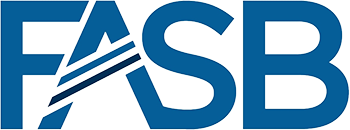Introduction
1. The Accounting Standards Codification is amended as described in paragraphs 4 and 5. Terms from the Master Glossary are in
bold type. Added text is
underlined, and deleted text is
struck out
.
2. In March 2017, the Board issued Accounting Standards Update No. 2017-08, Receivables—Nonrefundable Fees and Other Costs (Subtopic 310-20): Premium Amortization on Purchased Callable Debt Securities. The amendments in that Update shortened the amortization period for certain purchased callable debt securities held at a premium by requiring that entities amortize the premium associated with those callable debt securities within the scope of paragraph 310-20-25-33 to the earliest call date. The Board noted in paragraph BC21 of Update 2017-08 that if the security contained additional future call dates, an entity should consider whether the amortized cost basis exceeded the amount repayable by the issuer at the next call date. If so, the excess should be amortized to the next call date.
3. In November 2019, the Board issued a proposed Accounting Standards Update, Codification Improvements, to clarify the guidance in paragraph 310-20-35-33. The Board received 10 comment letters on the proposed Update. The amendments in this Update clarify the Board’s intent that an entity should reevaluate whether a callable debt security that has multiple call dates is within the scope of paragraph 310-20-35-33 for each reporting period.
Amendments to Subtopic 310-20
4. Amend paragraph 310-20-35-33, with a link to transition paragraph 310-20-65-2, and add paragraph 310-20-65-2 and its related heading, as follows:
Receivables—Nonrefundable Fees and Other Costs
Subsequent Measurement
> Estimating Principal Prepayments
310-20-35-33 To
For each reporting period, to the extent that the amortized cost basis of an individual callable
debt security exceeds the amount repayable by the issuer at the
next earliest
call date, the excess (that is, the premium) shall be amortized to the
next earliest
call date, unless the guidance in paragraph 310-20-35-26 is applied to consider estimated prepayments.
For purposes of this guidance, the next call date is the first date when a call option at a specified price becomes exercisable. Once that date has passed, the next call date is when the next call option at a specified price becomes exercisable, if applicable. A
fter the earliest call date, if the call option is not exercised
If there is no remaining premium or if there are no further call dates, the entity shall reset the effective yield using the payment terms of the debt security. Securities within the scope of this paragraph are those that have explicit, noncontingent call
options features
that are callable at fixed prices and on preset dates
at prices less than the amortized cost basis of the security. Whether a security is subject to this paragraph may change depending on the amortized cost basis of the security and the terms of the next call option.
Transition and Open Effective Date Information
> Transition Related to Accounting Standards Update No. 2020-08, Codification Improvements to Subtopic 310-20, Receivables—Nonrefundable Fees and Other Costs
310-20-65-2 The following represents the transition and effective date information related to Accounting Standards Update No. 2020-08, Codification Improvements to Subtopic 310-20, Receivables—Nonrefundable Fees and Other Costs:
-
For public business entities, the pending content that links to this paragraph shall be effective for fiscal years, and interim periods within those fiscal years, beginning after December 15, 2020. Early application is not permitted.
-
For all other entities, the pending content that links to this paragraph shall be effective for fiscal years beginning after December 15, 2021, and interim periods within fiscal years beginning after December 15, 2022. Early application of the pending content that links to this paragraph is permitted for fiscal years beginning after December 15, 2020, including interim periods within those fiscal years.
-
An entity shall apply prospectively the pending content that links to this paragraph by resetting the effective yield to the extent that the amortized cost basis of an existing individual callable debt security exceeds the amount repayable by the issuer at the next earliest call date, unless the guidance in paragraph 310-20-35-26 is applied to consider estimated prepayments.
-
An entity that applies the pending content that links to this paragraph shall disclose the following in each interim period of the year of adoption and in the annual period of the year of adoption:
-
The nature of the change in accounting principle, including an explanation of the newly adopted accounting principle
-
The method of applying the change.
Amendments to Status Sections
5. Amend paragraph 310-20-00-1, by adding the following items to the table, as follows:
310-20-00-1 The following table identifies the changes made to this Subtopic.
|
|
Accounting Standards Update
|
|
|
|
The amendments in this Update were adopted by the unanimous vote of the seven members of the Financial Accounting Standards Board:
Richard R. Jones, Chairman
James L. Kroeker, Vice Chairman
Christine A. Botosan
Gary R. Buesser
Susan M. Cosper
Marsha L. Hunt
R. Harold Schroeder













